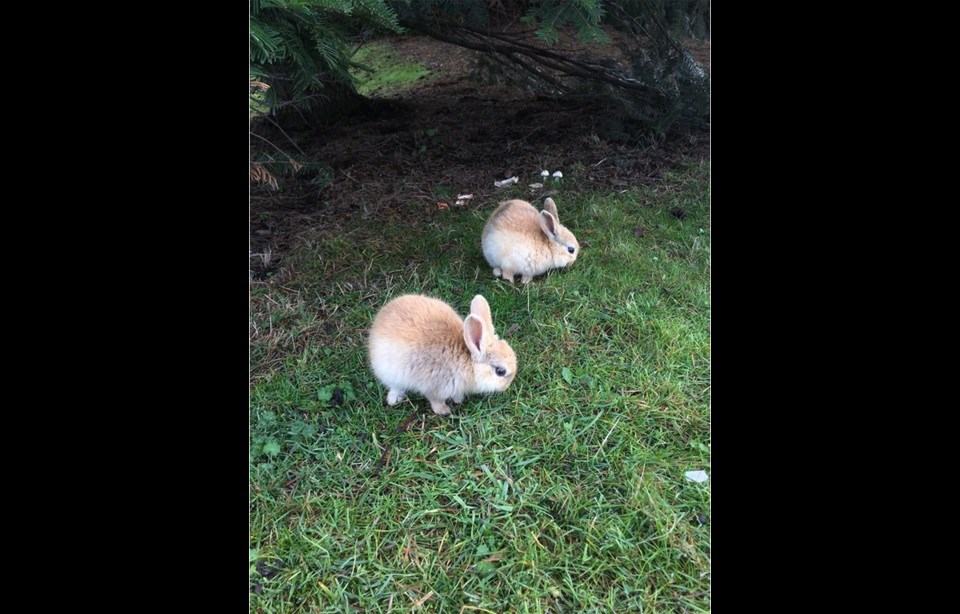The City of Richmond’s attempts to control the feral rabbit just can’t seem to keep up with its growing population.
Not only do they pose health risks to native species – by spreading Rabbit Hemmoradic Disease – these non-native rabbits are also damaging natural habitats.
“Impacts to the environment are evident, and based on reported sightings, rabbits are moving into ecologically sensitive areas such as Terra Nova Park and new landscapes such as Aberdeen Park and Paulik Neighbourhood Park,” reads a report on feral rabbits going to council’s parks, recreational and cultural services committee next week.
Despite trying several different strategies over the past two years, the feral rabbit population doesn’t seem to be declining.
“While rabbit control efforts have been successful where employed, the prolific breeding of rabbits often outcompete the current capacity of service providers,” reads the report.
Since 2020, when a pilot program was launched, the city has been working with Rabbitats to humanely capture, spay/neuter and relocate the rabbits to one of the not-for-profit’s sanctuaries.
Between December 2020 and June 2021, 61 adult feral rabbits were captured. All of the female rabbits except one were pregnant, resulting in 28 more rabbits being born in the sanctuary.
Feral rabbits, which are domesticated rabbits – or their offspring - that have been abandoned or escaped outdoors, are largely European rabbits and are classified as an invasive species.
Richmond banned the sale of rabbits in pet stores in 2010, and homeowners can’t have more than two domestic rabbits per household.
Feeding animals, including rabbits, in any public park or school ground, and releasing any animals in these areas, is also banned under city bylaws.
Due to their adaptability, lack of natural predators and prolific breeding, feral rabbits can “rapidly outcompete” native rabbit species, according to the report. The rabbits also feed on native plants and shrubs which results in the damage and loss of natural habitat, and have been reported in and around agricultural land.
“Furthermore, because feral rabbits are transient and often seek out new habitable space, they often invade roadways and can pose a risk to motorists' safety,” the report states.
In 2020, the city launched a pilot program with Rabbitats to help manage the feral rabbit population in the Dover Neighbourhood area.
Through the program, Rabbitats trapped, spayed/neutered and vaccinated rabbits in the area against Rabbit Hemmoradic Disease (RHD), and relocated them to one of their sanctuaries.
This program was continued in 2021, and Rabbitats was asked to respond to reports of feral rabbit sightings in Richmond. In total, 118 rabbits were removed from public property and relocated to a sanctuary that year.
In the report, city staff propose increasing public awareness in 2022 and continuing to work with Rabbitats to manage the feral rabbit populations, with the city paying up to $15,000 to the not-for-profit.
City staff will also look at developing a Feral Rabbit Management Study for a “comprehensive, proactive and sustainable response specific to feral rabbits.” This includes identifying the extent of Richmond’s feral rabbit population, where they are concentrated and population trends.
The study will be funded through the Invasive Species operating budget and is not expected to exceed $25,000.



